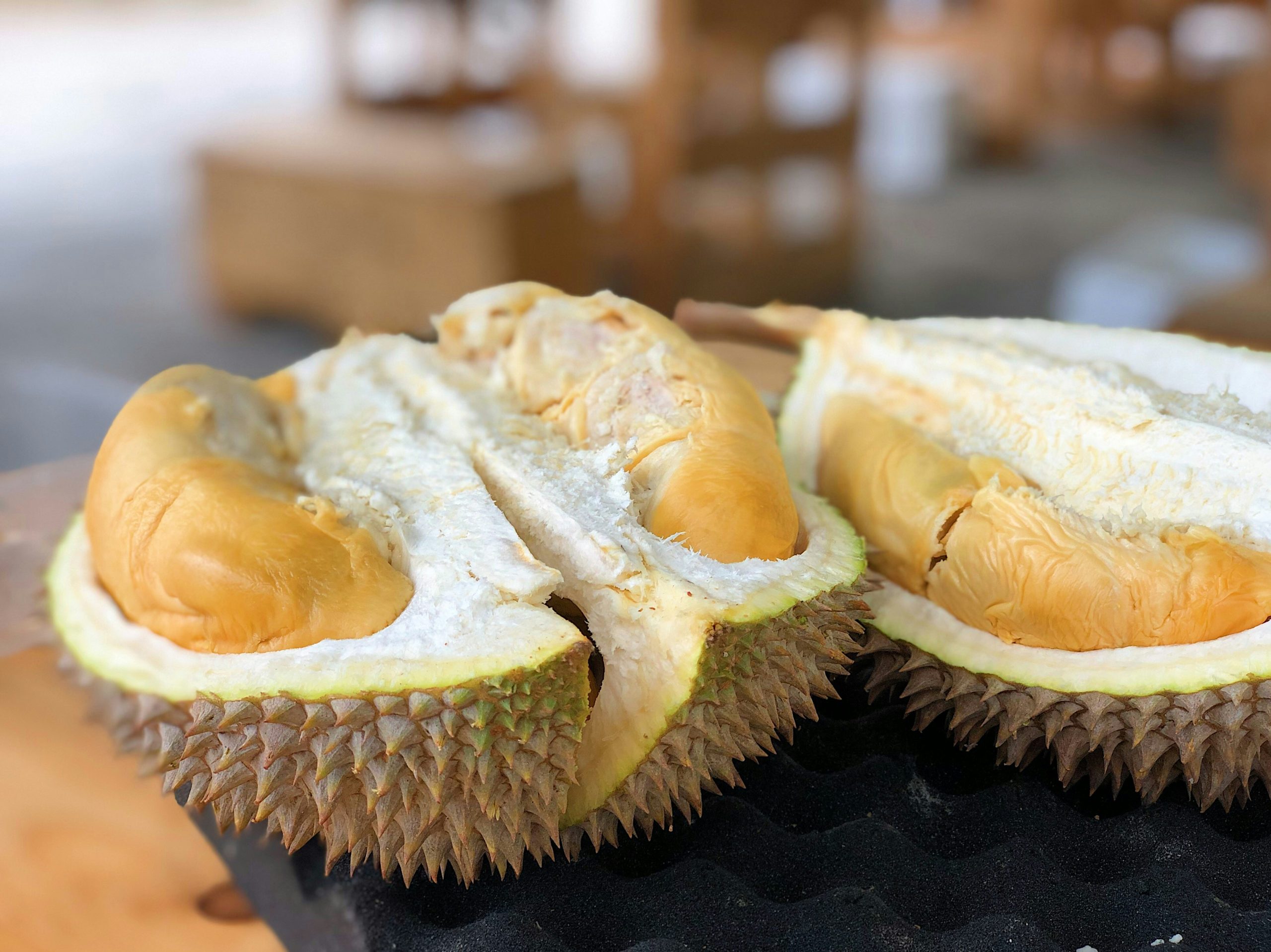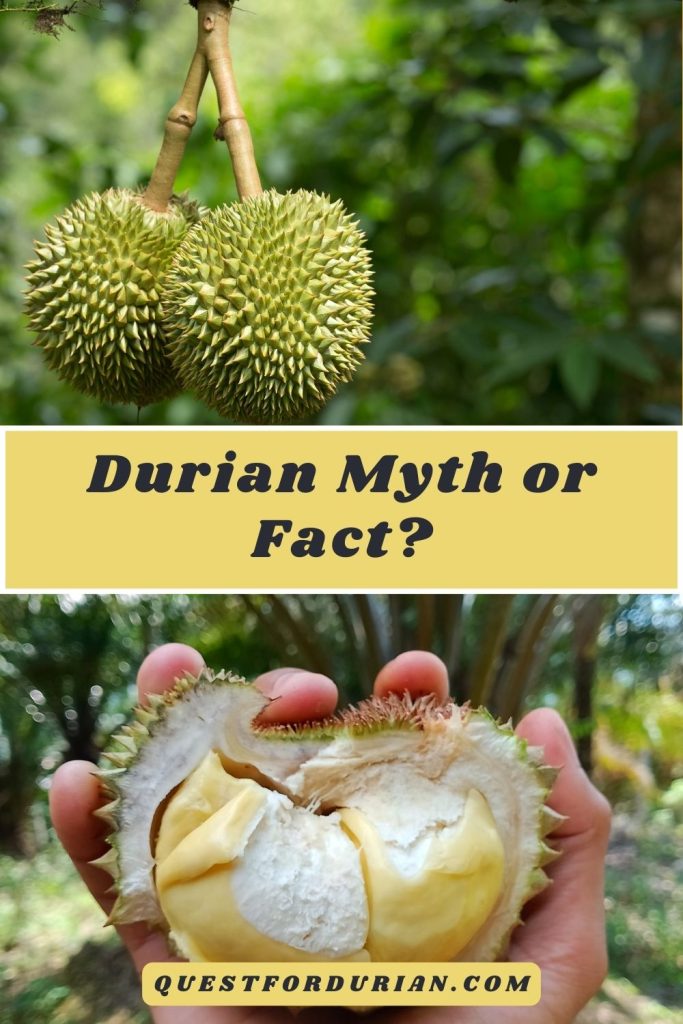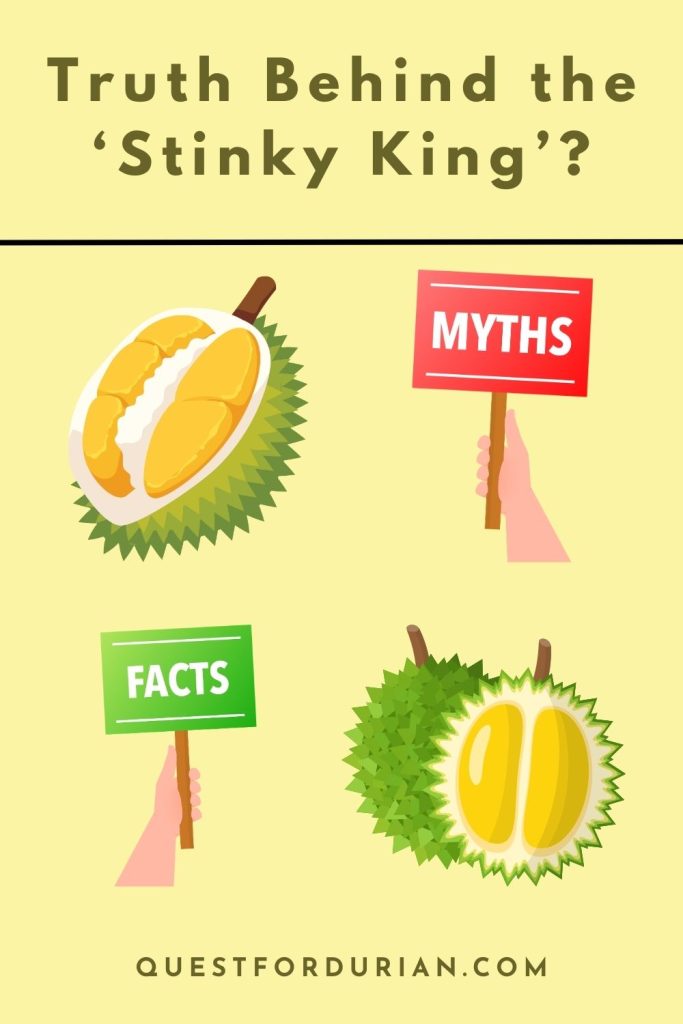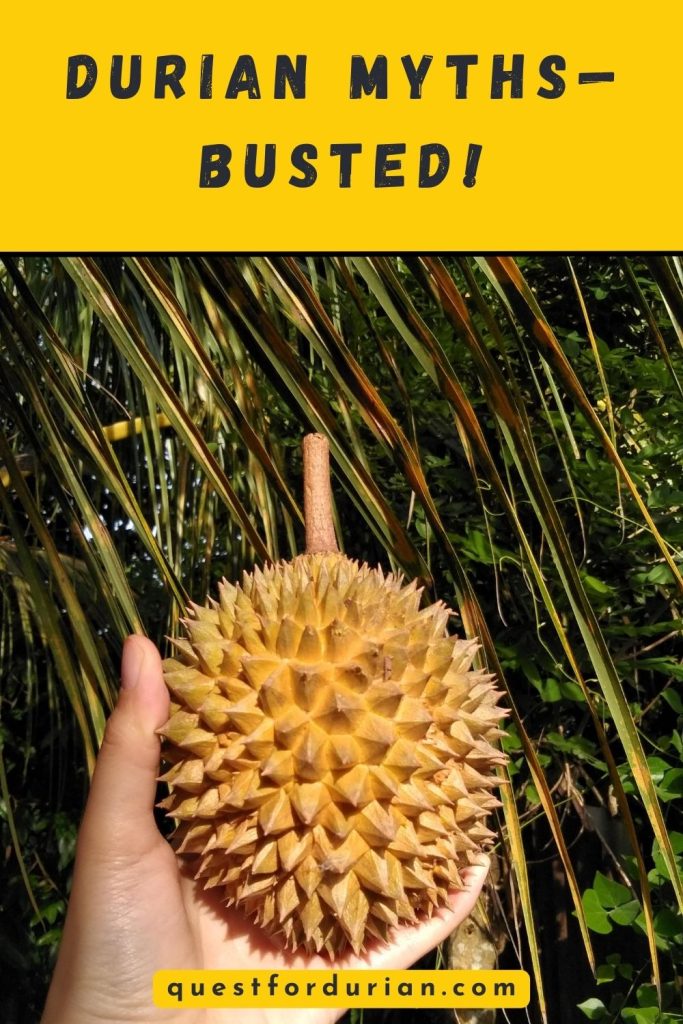
Durian Myth or Fact?
Think you know everything about durians? Test your knowledge with these common durian claims! Some are surprising facts, while others are complete myths. Can you separate the truth from the fiction?
Durian is banned in ALL hotels and public transportation across Southeast Asia.
MYTH!
While many hotels and public transport ban durian due to its smell, it’s not universal. Some budget hotels and local transport in rural areas allow it. The ban is mainly in upscale establishments and major cities.
Eating durian with alcohol can be dangerous and potentially fatal.
FACT!
Durian contains sulfur compounds that may interfere with alcohol metabolism, causing nausea, vomiting, and heart palpitations. In Traditional Chinese Medicine, both are extremely “heating” foods that can dangerously overheat the body when combined.
Durian trees only grow in Thailand and Malaysia.
MYTH!
Durian trees grow throughout Southeast Asia, including Indonesia, Brunei, Philippines, Myanmar, Vietnam, and Cambodia. Indonesia actually has the most variety diversity with over 30 types, while Thailand and Malaysia are just the most commercially famous.
Durian contains more potassium than bananas.
FACT!
Durian contains about 436mg of potassium per 100g, while bananas contain about 358mg. Durian is also rich in vitamin C, healthy fats, and fiber, making it quite nutritious despite being high-calorie.
All durian varieties smell equally strong.
MYTH!
Different varieties have vastly different smell intensities. Some like Thai “Chanee” have mild aromas, while others like “Monthong” are quite pungent. Some Indonesian varieties are almost odorless when ripe!
Durian was once used as a weapon in ancient warfare.
FACT!
Historical records show durian’s heavy, spiky shell was used as a weapon in some Southeast Asian conflicts. The hard, thorny exterior made it effective as a projectile. Some cultures also used durian shells as bowls and cooking vessels!
Pregnant women should never eat durian as it causes birth defects.
MYTH!
This is a cultural myth. However, there is some truth to it in Traditional Chinese Medicine, where durian is considered extremely “heating,” so those feeling warm during pregnancy or with hot constitutions should avoid it. Durian is safe for pregnant women in moderation and provides beneficial nutrients like folate and potassium.
Durian shells can be used to remove the smell of durian from your hands.
FACT!
This traditional trick actually works! Rubbing your hands on the inside of a durian shell helps neutralize the lingering smell. The shell contains compounds that counteract the sulfur compounds responsible for the odor.
Durian trees produce fruit year-round.
MYTH!
Durian trees have specific fruiting seasons that vary by region and variety. In Malaysia and Thailand, the main season is typically June to August, with a smaller season in December to February. Trees need dry periods followed by rain to trigger fruiting.
The smell of durian can be detected from over 100 meters away.
FACT!
Studies show durian’s distinctive aroma can travel great distances. The volatile sulfur compounds are so potent that under the right wind conditions, the smell can be detected from 100+ meters away. This is why durian vendors are often in specific market areas!

Quiz Complete!
Did you enjoy separating durian myths from facts? 👑 If bold flavours and wild adventures are your thing, join the Quest for Durian mailing list! Get juicy updates on travel tips, hidden foodie gems, and of course—everything durian. Let the next delicious journey find you! ⬇️
📍Pin for later!👇









